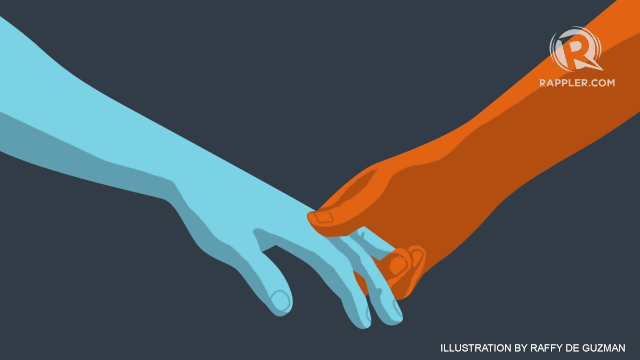SUMMARY
This is AI generated summarization, which may have errors. For context, always refer to the full article.

What do friends, lovers and strangers have in common? All of them are stressful to be with. They, of course, could be joyful too but I think we can all agree that they are also reliable sources of stress. What is more, with strangers, even if you were not conscious of it, you feel stressed in a way that prevents you from empathizing with them. And guess what? The reverse also has been proven to be real – that if you experience pain with someone you know, you feel more pain than you would if you had felt that pain alone.
At first, it seemed counterintuitive to me. The common wisdom of course is that pain is cushioned when you are with friends. Well, that is true but not when you are both experiencing pain. A very recent study on empathy tried to look at how feelings can be transferred from one to another or what could prevent one from doing so. And they found that when two people who know each other experience pain, they feel more pain than when they experienced pain alone or with a stranger.
The subjects were undergraduate students who immersed their arm in ice-cold water and were asked to rate their pain. They tried various combinations as mentioned above with interesting additional scenarios including one where the strangers were even given a drug that blocks the hormone cortisol (active when meeting strangers). The strangest scenario to me was between two strangers who played 15 minutes of a video game together in an attempt to foster familiarity.
The pain scores remained the same when the subjects were alone or with a stranger. However, the pain actually increased when these students put their arms in ice water across from a friend. This was a signal that the emotion was being shared and that empathy was there. The surprising thing was even if the “bonding” moment was only for 15 minutes playing a video game together, empathy was established between the humans which was measured by the increased felt pain.
The study even cited previous works that were done on mice which also yielded the same results. There was more “felt pain” among mice who were caged together. And when they blocked the hormone cortisol from the mice, the mice showed empathy even for strangers! This was the same for the humans who were given drugs to block cortisol – which is the hormone that signals whether we will fight or flee from a stranger.
This made me think about how some cultures are characterized as more empathetic than others. Maybe this has to do with the number and frequency of rituals by which people meet and engage each other and strip the strangeness of strangers. Filipino culture has so many ‘excuses” to socialize so that I often tell my foreigner-friends that all 104 million of us know each other by the time we breathe our last.
One of the most empathetic moments I have ever witnessed was when I was once on a plane back to the Philippines. We were about to land and suddenly, a young Filipino started to stiffen and shake in his seat, apparently panicking from the movements produced by the plane on descent. Against the strong objections of the flight attendants, two Filipina women who seemed like they were mothers, stood up and went to the man and started massaging his arms and legs and repeated calming words to him, saying something like “uuwi ka na, wag ka mag-alala” (you will be home soon, don’t worry.”) They did this until the plane landed.
It turned out that the young man has been working as a laborer abroad for many years and it was his first time to come home. He was overwhelmed with fatigue, stress and anxiety of having to come home after a long time. I overheard all of them later telling each other stories as OFWs and how the young man will get used to it soon. He reacted to the two women as if they were his aunts. And the two women just kept assuring him that everything was going to be alright.
It turned out too that the two women did not know him before then. They only heard what was happening to the man on the plane.
I understand why empathy is really difficult to cultivate among strangers, and with about 7 billion people who are strangers to most, how much empathy could we muster? Do we have enough to save most of us? Or do we just have pockets of it to save a few?
I would like to think that as humans, we are capable of imagining our own common fate, our shared identities even if we have not spent time with them. My faith in humans fluctuates but when I remember that plane incident, it stays up for a while longer. – Rappler.com
Add a comment
How does this make you feel?
There are no comments yet. Add your comment to start the conversation.